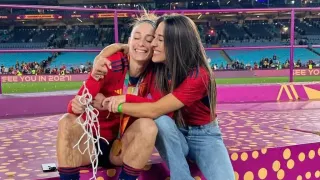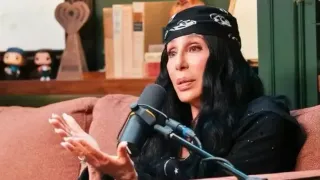January 13, 2021
Is Same-Sex Marriage in India's Future?
Kevin Schattenkirk READ TIME: 3 MIN.
A same-sex Indian couple is fighting against the odds for their right to get married.
Kavita Arora and Ankita Khanna, a couple in New Delhi, petitioned a court in October for the right to marry, Newsweek reports. They argue that without legal recognition of their relationship, they are "strangers in law." A court heard the petition on January 8, and the ruling could impact marriage equality for over 2.5 million LGBTQ Indians.
Arora, age 47 and a psychiatrist, and Khanna, age 36 and a psychologist, were motivated by the COVID-19 pandemic. They were concerned that they would not be permitted to make medical decisions on one another's behalf if either should become ill.
The couple met in 2006 while working at a mental health hospital, founded by Arora, treating children and adolescents. Getting together in 2012, they said the lack of legal recognition didn't initially bother them. "It never felt criminal to us," Arora said. However, it was the impact of the 2018 ruling on their LGBTQ patients that changed their attitudes.
Another aspect that motivated the couple to fight for same-sex marriage was encountering bureaucratic problems that impacted their relationship. Banks wouldn't allow Arora and Khanna to open joint accounts; they had difficulty establishing a permanent address for Khanna; and the couple encountered officials, either ignorant or in denial, who regularly asked if they were sister, mother and daughter, or landlord and tenant.
Arora and Khanna considered their role in the fight for marriage equality and how it might impact younger LGBTQ Indians. Arora said, "When I was 18, I wish I had an ordinary couple to relate to. In many ways, I am doing this for my younger self." Khanna added, "We did zoom-out [to] think about what this petition will mean for every young person we work with. That really was a turning point for us in this."
If the couple wins their case in court, constitutionally, marriage equality will apply to the entire country unless another court in another state makes an opposing ruling. For instance, a 2009 ruling decriminalized same-sex relationships only to be overturned by the supreme court in 2013. After five years and several counter-petitions, same-sex relationships were finally decriminalized. Modi's Bharatiya Janata Party has also expressed opposition to same-sex marriage from the government.
A 2019 survey indicates 62% of Indians do not support same-sex marriage – a statistic fueled by Prime Minister Narendra Modi and a conservative government, as well as religious groups. LGBTQ people contend with discrimination and violence throughout the country, and are fighting to ban conversion therapy.
As EDGE reported last year, before the repeal of Indian penal Code 377, which challenged its constitutional validity on the specific ground that it criminalized consensual sexual intercourse between adult persons belonging to the same sex in private, the LGBTQ community faced public outings, LGBTQ parties and nightclubs migrated underground to avoid police raids, and some openly queer film and music artists implied their work – depicting positive LGBTQ representation – was, as EDGE noted, "considered untouchable by distributors."
Like many other cultures that slowly progress toward equal rights and protections for its LGBTQ citizens, India's 2018 Supreme Court ruling decriminalizing same-sex relationships hasn't put a halt to discrimination. The LGBTQ community in India continues to work not only toward expanded legal rights and protections but also toward greater representation that can impact positive social change for the community. The Aravani Art Project, a collective of transgender and female-identifying artists, painted a mural called "The Story of Bangalore" designed to give voice to transgender experiences in India.






